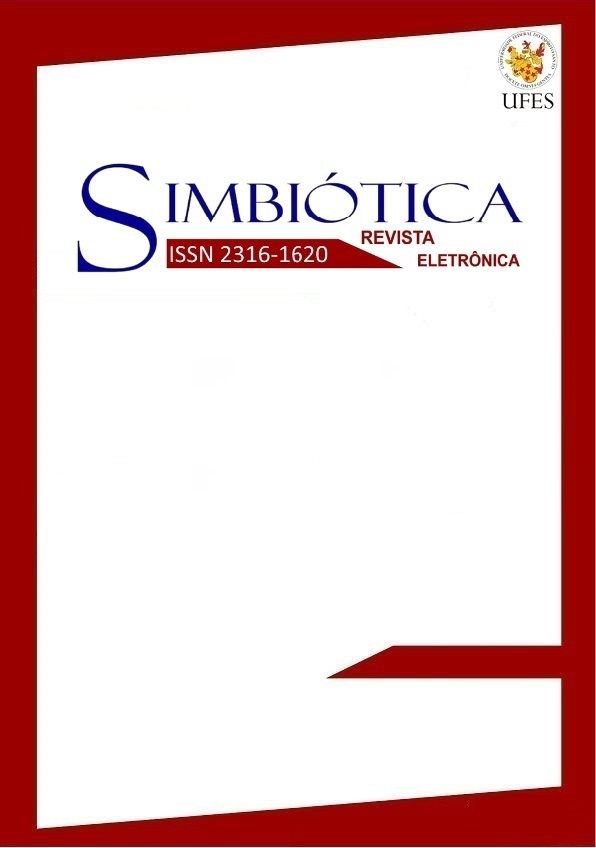El Paisaje y su Literatura, en el cambio de paradigma filosófico
DOI:
https://doi.org/10.47456/simbitica.v9i3.39803Palabras clave:
Natureza, Ambiente, Paisagem cultural, Filosofia ambientalResumen
Este artículo se fundamenta en la definición del concepto de paisaje, basado en la filosofía de la naturaleza y el medio ambiente, y su particular relación con la representación del paisaje en la literatura. En su recorrido investigativo, desvela la experiencia estética y ética de la naturaleza, que evoluciona desde las concepciones conservacionistas hasta la categoría de medio ambiente, con sus correlaciones económicas, sociales, culturales e históricas, configuradas en lo que llamamos "paisajes culturales", marcados por el dilema "crecimiento o desarrollo sostenible". Y analiza el nuevo paradigma de la naturaleza, donde se integra el ser humano, que emana del concepto de medio ambiente y se traduce en la construcción de una nueva estética y una nueva ética, una nueva filosofía ambiental, premonitoriamente representada en la literatura.
Palabras clave: Naturaleza; Medio Ambiente; Paisaje cultural; Filosofía ambiental.
Referencias
BERLEANT, ARNOLD (1970), “Aesthetics and the Contemporary Arts”. The Journal of Aesthetics and Art Criticism, XXIX, 2 (Winter l970), l55-l68. Reprinted in The Philosophy of the Visual Arts, ed. Philip Alperson (New York: Oxford University Press, 1992), and in part in Esthetics Contemporary, ed. Richard Kostelanetz, l978.
BERLEANT, ARNOLD. (2020), “The Transformations of Aesthetics”. In, Examining a New Paradigm of Heritage With Philosophy, Economy, and Education. Edit. By António dos Santos Queirós. IGI Global http://doi:10.4018/978-1-7998-3636-0
BERQUE, AGUSTIN (2012), “Paisagens em Transição”. Filosofia da Paisagem. Uma antologia. Coordenação de Adriana Veríssimo Serrão. Centro de Filosofa da Universidade de Lisboa. Lisboa.
CABRAL, FRANCISCO CALDEIRA (1993), Fundamentos da Arquitetura Paisagista. Lisboa: Instituto de Conservação da Natureza.
CABRAL, FRANCISCO CALDEIRA, TELES, RIBEIRO (1999), A Árvore em Portugal. Lisboa: Assírio & Alvim.
CORREIA, CARLOS JOÃO (1994) “Ricoeur e a Expressão Simbólica do Sentido”, resumo da dissertação de doutoramento, Philosophica, n. 3.
DIAS, JORGE (1961), Estudos de Antropologia, Volume I, Uma introdução histórica da etnografia portuguesa. Lisboa: Imprensa Nacional-Casa da Moeda.
DIAS, JORGE (1990), Estudos de Antropologia, Volume I. A Etnografia como Ciência. Lisboa, Imprensa Nacional-Casa da Moeda.
JONAS, HANS (1984), “The Imperative of Responsibility”. In Search of an Ethics for the technological Age, The University of Chicago Press, Chicago.
LARRERE, CATHERINE, LARRERE, RAPHAËL (1997), Du Bon Usage de La Nature. Aubier, Paris. Instituto Piaget, Portugal.
LEOPOLD, ALDO (1947), A Sand County Almanac. New York: Oxford University Press.
MARTINS, OLIVEIRA (1987), Portugal Contemporâneo, Lisboa: Círculo de Leitores, D.L.
PROENÇA, RAÚL (1991), Guia de Portugal, vol.I. Lisboa: Fundação Calouste Gulbenkian.
QUEIRÓS, ANTÓNIO (2003), A Representação da Natureza e do Ambiente na Cultura Artística e Científica da Geração de 70. Tese de doutoramento em Filosofia das Ciências, Centro de Filosofia da FLUL, Lisboa.
QUEIRÓS, ANTÓNIO (2013), “Turismo de paisagem”. In Filosofia e Arquitetura da Paisagem. Um Manual” Capítulo III. Viver a Paisagem. Coordenação de Adriana Veríssimo Serrão. Edição CFUL. Lisboa, pp. 177-187.
QUEIRÓS, ANTÓNIO (2003), “Campos de Deméter: Da impossibilidade de separar a ciência, a ética e a estética na hermenêutica da paisagem”, in Revista Philosophica n. 40. Departamento de Filosofia da FLUL, pp. 69-94.
RIBEIRO, ORLANDO (1998), Portugal, o Mediterrâneo e o Atlântico. Lisboa, Livraria Sá da Costa.
RIBEIRO, ORLANDO (1980), “Geographia de Estrabão, Geografia e Reflexão Filosófica”, in Memória da Academia das Ciências de Lisboa, Classe das Ciências, Tomo XXI, Lisboa.
SCHILLER, FRIEDRICH (1997), Textos. Sobre o Belo, O Sublime e o Trágico. Lisboa, Imprensa Nacional - Casa da Moeda.
SCHILLER, FRIEDRICH (1997), Sobre a Educação estética do Ser Humano numa série de cartas e outros textos. Lisboa: Imprensa - Nacional Casa da Moeda.
SINGER, PETER (1993), Ética Prática, capítulo Tirar a Vida de Animais, São Paulo, Editora Martins Fontes.
SPINOZA, BENTO (1988), Éthique. Texte original et traduction nouvelle par Bernard Pautrat. Paris, Éditions du Seuil
United Nations Conference on the Human Environment, 1972, Action Plan for the Human Environment. B.5. Development and Environment, United Nations Conference on the Human Environment, Stockholm.
Descargas
Publicado
Número
Sección
Licencia
Derechos de autor 2022 António dos Santos Queirós

Esta obra está bajo una licencia internacional Creative Commons Atribución-NoComercial 4.0.
Autores que publicam nesta revista concordam com os seguintes termos:
a. Autores mantém os direitos autorais e concedem à revista o direito de primeira publicação, com o trabalho simultaneamente licenciado sob a Creative Commons - Atribuição-NãoComercial 4.0 Internacional.
b. Compartilhar - copiar e distribuir o material em qualquer meio ou formato.
Adaptar - remix, transformar e construir sobre o material para qualquer finalidade, inclusive comercial.
c. Autores têm autorização para assumir contratos adicionais separadamente, para distribuição não-exclusiva da versão do trabalho publicada nesta revista (ex.: publicar em repositório institucional ou como capítulo de livro), com reconhecimento de autoria e publicação inicial nesta revista.
d. Autores têm permissão e são estimulados a publicar e distribuir seu trabalho online (ex.: em repositórios institucionais ou na sua página pessoal) a qualquer ponto antes ou durante o processo editorial, já que isso pode gerar alterações produtivas, bem como aumentar o impacto e a citação do trabalho publicado (Veja O Efeito do Acesso Livre).
Authors who publish in this journal agree to the following terms:
a. Authors retain the copyright and grant the magazine the right of first publication, with work simultaneously licensed under the CCreative Commons - Atribuição-NãoComercial 4.0 Internacional.
b. Share - copy and distribute the material in any medium or format.
Adapt - remix, transform and build on the material for any purpose, including commercial.
c. Authors are authorized to take additional contracts separately, for non-exclusive distribution of the version of the work published in this journal (eg, publish in institutional repository or as a book chapter), with acknowledgment of authorship and initial publication in this journal.
d. Authors are allowed and encouraged to publish and distribute their work online (eg.: in institutional repositories or on their personal page) at any point before or during the editorial process, as this can generate productive changes as well as increase the impact and the citation of the published work (See The Effect of Free Access).










